Categories
- Shop All (6027)
-
-
- Hi-Vis Chainsaw Safety (14)
- Hi-Vis Coveralls and Overalls (31)
- Hi-Vis Hoodies and Shirts (45)
- Hi-Vis Jackets (45)
- Hi-Vis Pants (22)
- Hi-Vis Rain Wear (52)
- Hi-Vis Vests (54)
- Winter Hi-Vis Bombers and Parkas (26)
- Winter Hi-Vis Coveralls and Overalls (24)
- Winter Hi-Vis Hoodies (4)
- Winter Hi-Vis Pants (5)
- Winter Hi-Vis Vests (7)
-
- Bib Overalls (11)
- Bombers and Parkas (17)
- Coveralls and Overalls (18)
- Disposable Garments (13)
- Flannel and Plaid Work Shirts (24)
- Heated Work Wear (6)
- Hoodies and Sweaters (13)
- Industrial Rainwear (55)
- Pants and Shorts (70)
- Shirts and Sweaters (40)
- Thermal Underwear (45)
- Vests (20)
- Work Jackets (82)
-
-
-
-
- Brooms (0)
- Dust Mops (0)
- Dust Pans and Brushes (0)
- Flow Thru Tools (2)
- Microfiber Mops (0)
- Pool and Tank Tools (3)
- Scrubbers and Scrapers (1)
- Soap and Sanitizer Dispensers (0)
- Sprayers (3)
- Squeegees (1)
- Toilet Brushes and Plungers (1)
- Trash Cans & Bags (8)
- Wet Floor Signs (0)
- Wet Mops and Buckets (1)
-
- Bars and Prying Tools (22)
- Bolt Cutters and Shears (15)
- Chisels and Punches (12)
- Combination Hand Tool Sets (6)
- Extractors (12)
- Files (6)
- Gear Pullers (14)
- Hammers and Mallets (15)
- Hand Saws (6)
- Hex Keys (10)
- Layout and Distance Lasers (2)
- Marking Tools (1)
- Measuring Tools (24)
- Pliers (45)
- Precision Measuring and Testing Tools (24)
- Propane Torches (8)
- Screwdrivers and Nutdrivers (21)
- Sockets (60)
- Tap and Die Sets (4)
- Tool Boxes (16)
- Utility Knives (17)
- VDE Tools (7)
- Wire Cutters and Strippers (14)
- Wrenches (21)
-
- Beveling and Deburring (17)
- Curb and Valve Keys (19)
- Drilling and Tapping (8)
- Extended Impact Sockets (3)
- Flaring and Rerounding (7)
- General Pipe Working Tools (19)
- Guillotine Pipe Cutters (2)
- Hydrostatic Test Pumps (8)
- Internal Pipe Cutters (6)
- PE Peelers (8)
- Pipe Reamers (4)
- Pipe Threading (15)
- Pipe Wrenches (18)
- Plastic Pipe Joint Kits (2)
- Plastic Pipe Saws (5)
- Power Drive (6)
- Quick Release Cutters (15)
- Ratchet Shears (6)
- Ratcheting Wrenches (9)
- Rotary Cutters (3)
- Shut Off Tools (9)
- Soldering Torches (3)
- Vises (7)
-
- Angle Grinders (6)
- Batteries and Chargers (11)
- Bench Grinders (3)
- Circular Saws (2)
- Combo Tool Kits (10)
- Cordless Fans (6)
- Cordless Lighting (15)
- Cut Off Saws (4)
- Drills and Drivers (8)
- Grease Guns (3)
- Impact Drivers (5)
- Jobsite Radios and Speakers (9)
- Lifestyle (7)
- Mitre Saws (2)
- Reciprocating Saws (4)
-
- Angle Grinder Wheels and Brushes (25)
- Bench Grinder Wheels (7)
- Circular Saw Blades (11)
- Drill and Driver Bits (25)
- High Speed Gas Saw Blades (3)
- Holesaws (11)
- Impact Sockets (23)
- Jig Saw Blades (2)
- Oscillating Multi Tool Blades (2)
- Portable Chop Saw Blades (4)
- Power Tool Storage (5)
- Reciprocating Saw Blades (8)
-
-
-
-
- Air Fresheners (2)
- All Purpose Cleaners (19)
- Bowl and Washroom (8)
- Coffee and Breakroom (21)
- Degreasers (3)
- Dishwashing (4)
- Disinfectants and Sanitizers (1)
- Drain Openers (7)
- Hand Cleaners (16)
- Laundry Cleaners (10)
- Paper Products and Wiper Rags (24)
- Scale Removers (2)
- Urinal Pucks and Liquids (5)
- Wet Wipes (4)
-
-
- Ball Valves (13)
- Black and Galvanized Steel Fittings (16)
- Bronze Pipe Fittings and Nipples (16)
- Butterfly Valves (5)
- Check Valves (10)
- Flexible Connectors (2)
- Gate and Globe Valves (6)
- Knife Gate Valves (9)
- Pipe Fitting Accessories (6)
- Schedule 80 PVC Fittings (31)
- Stainless Steel Fittings and Valves (12)
- Victaulic Grooved Fittings (21)

Chemical Metering Pumps
58 products
Showing 1 - 24 of 58 products
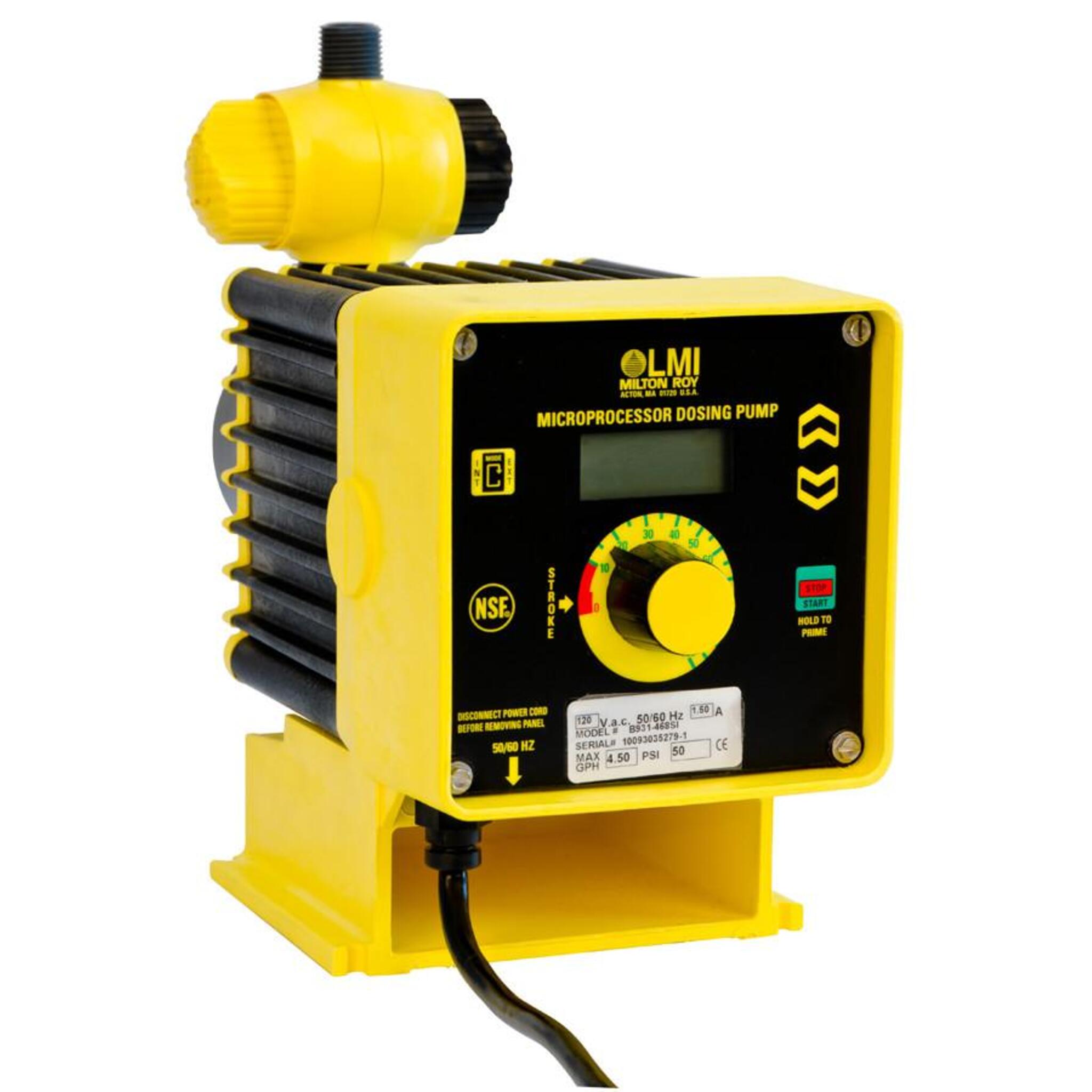
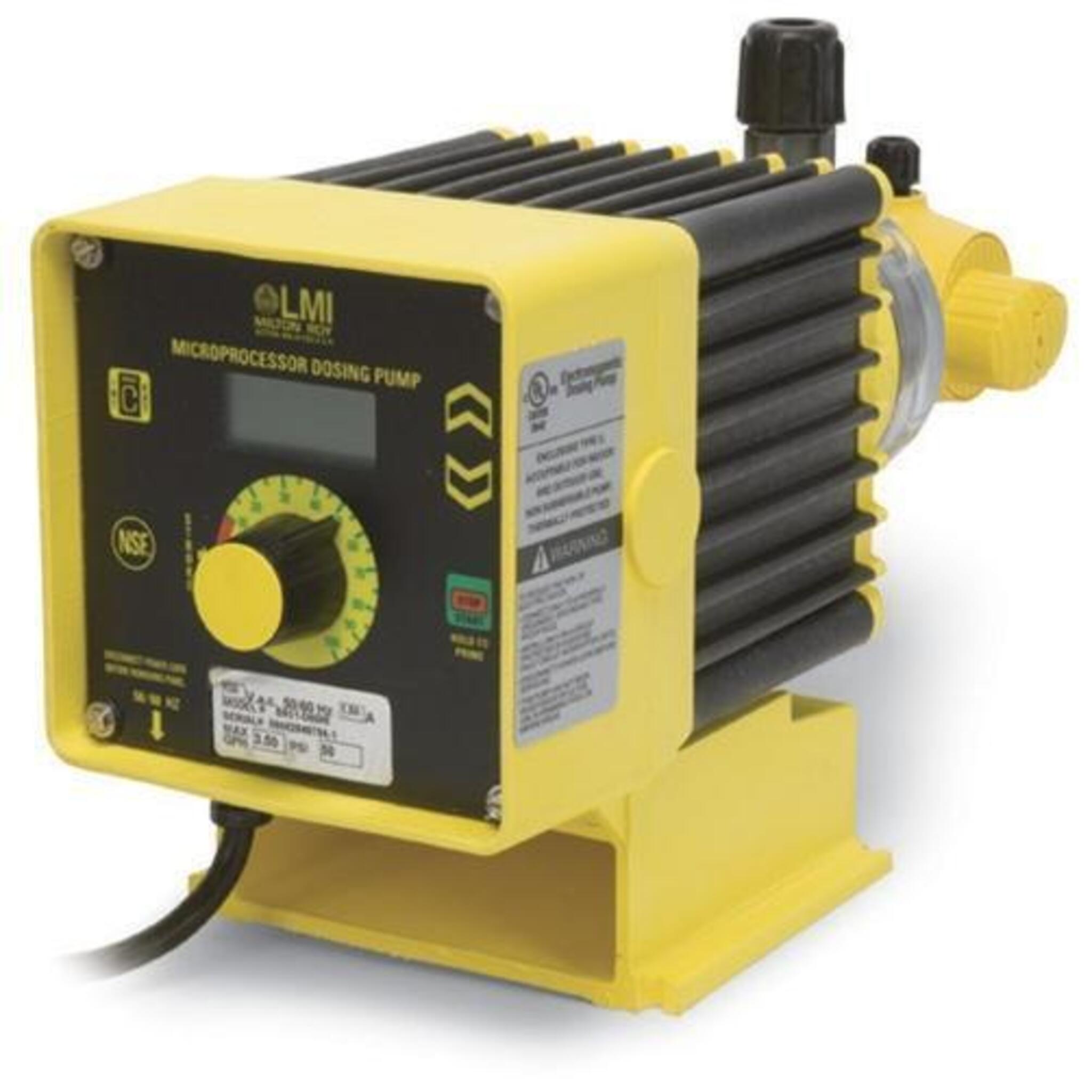
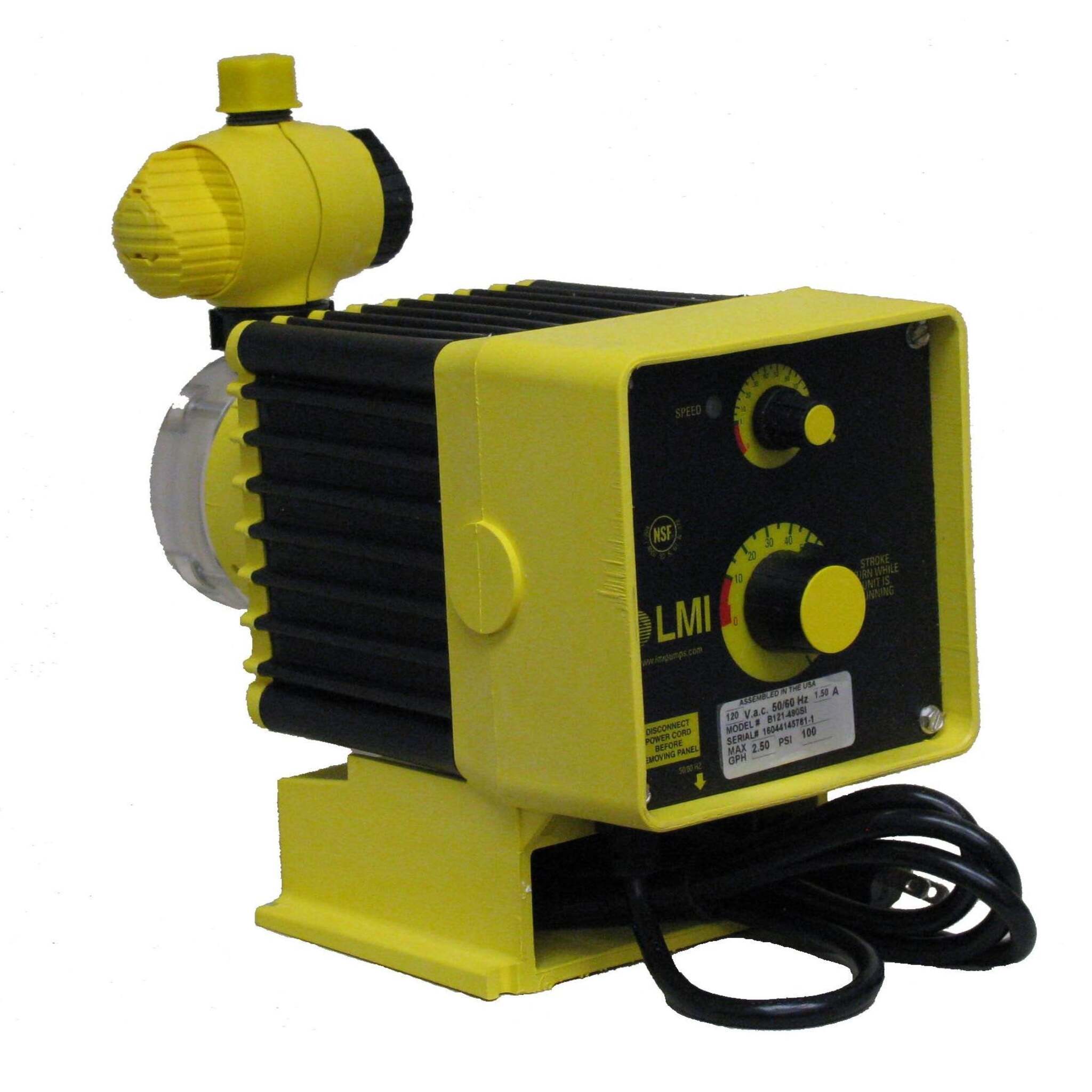
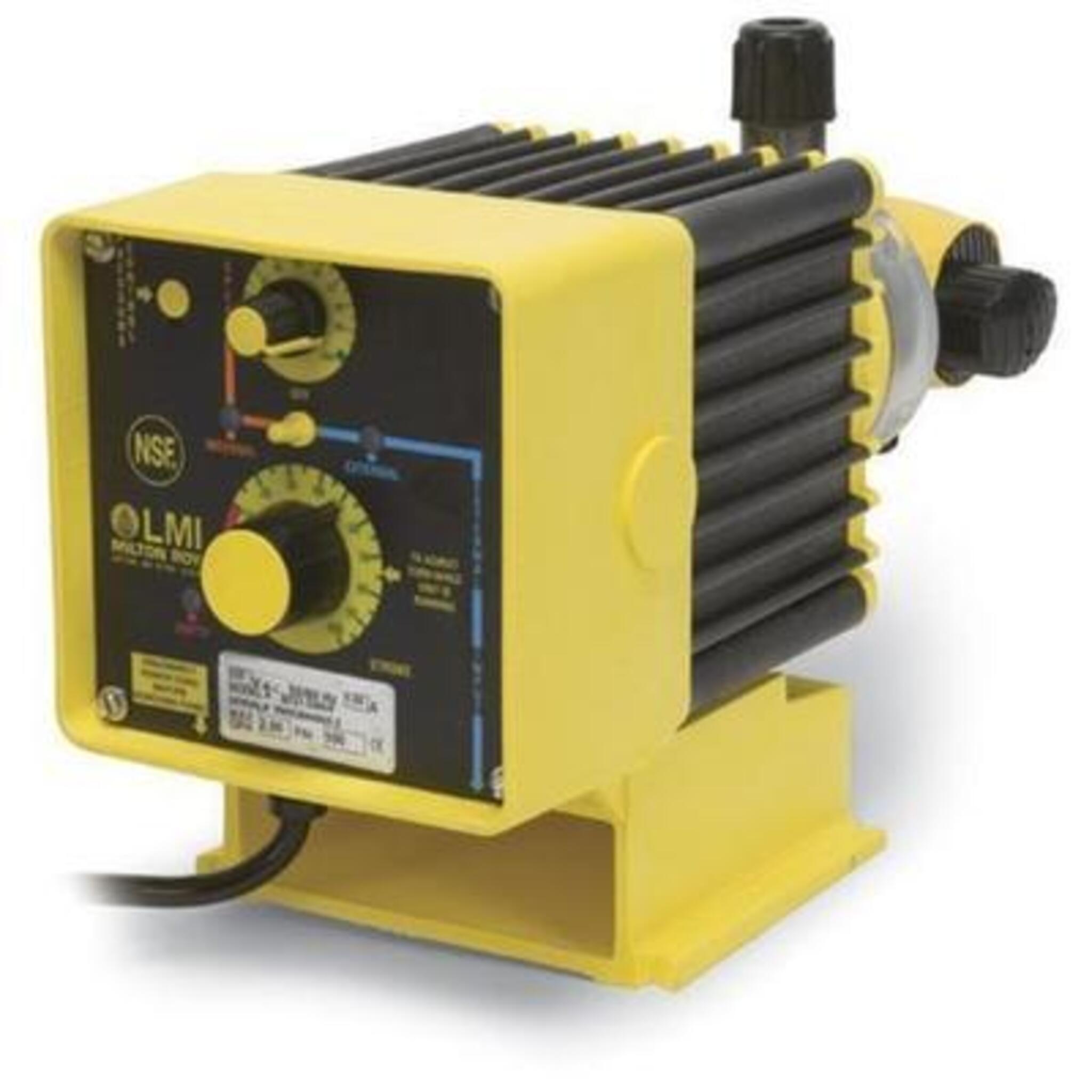
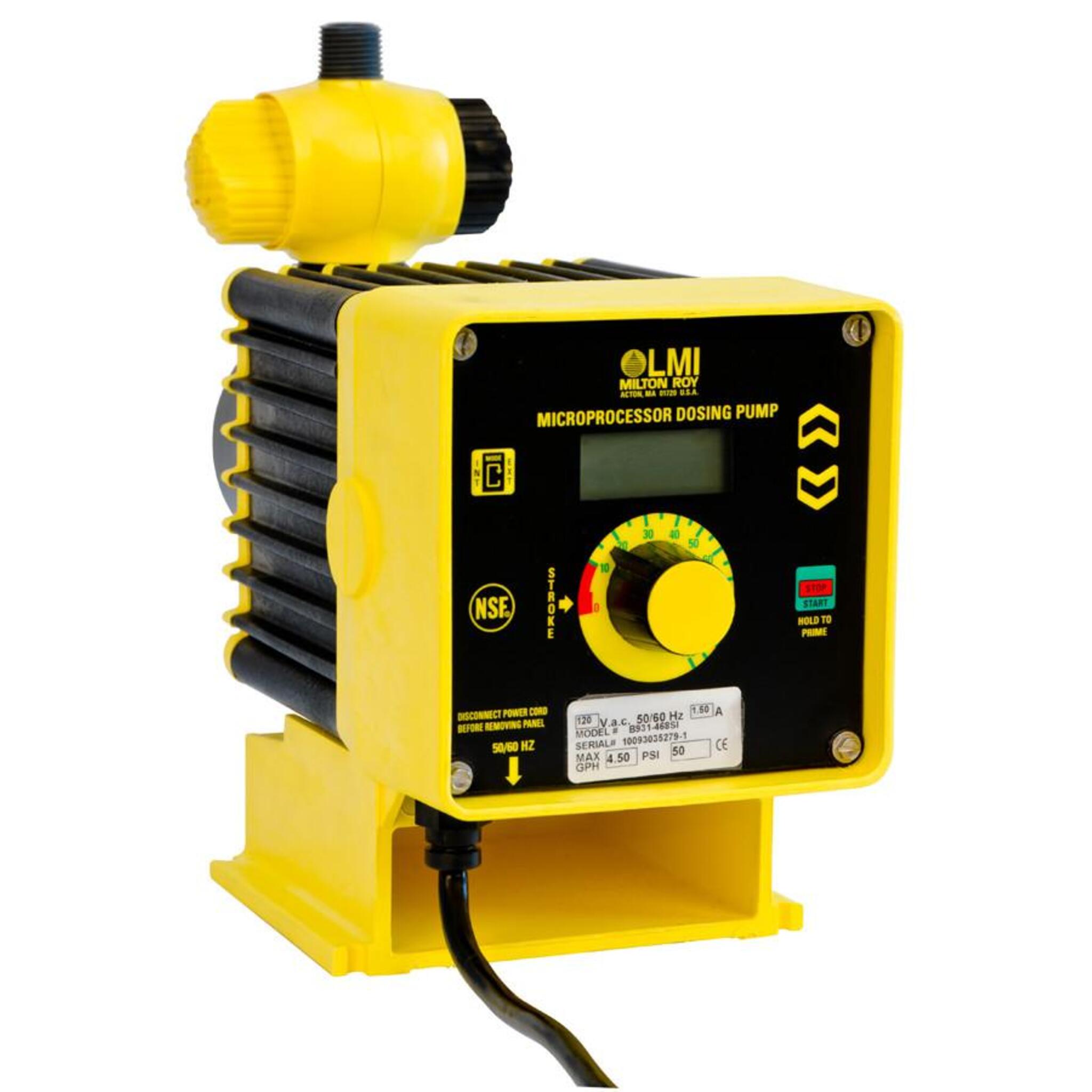
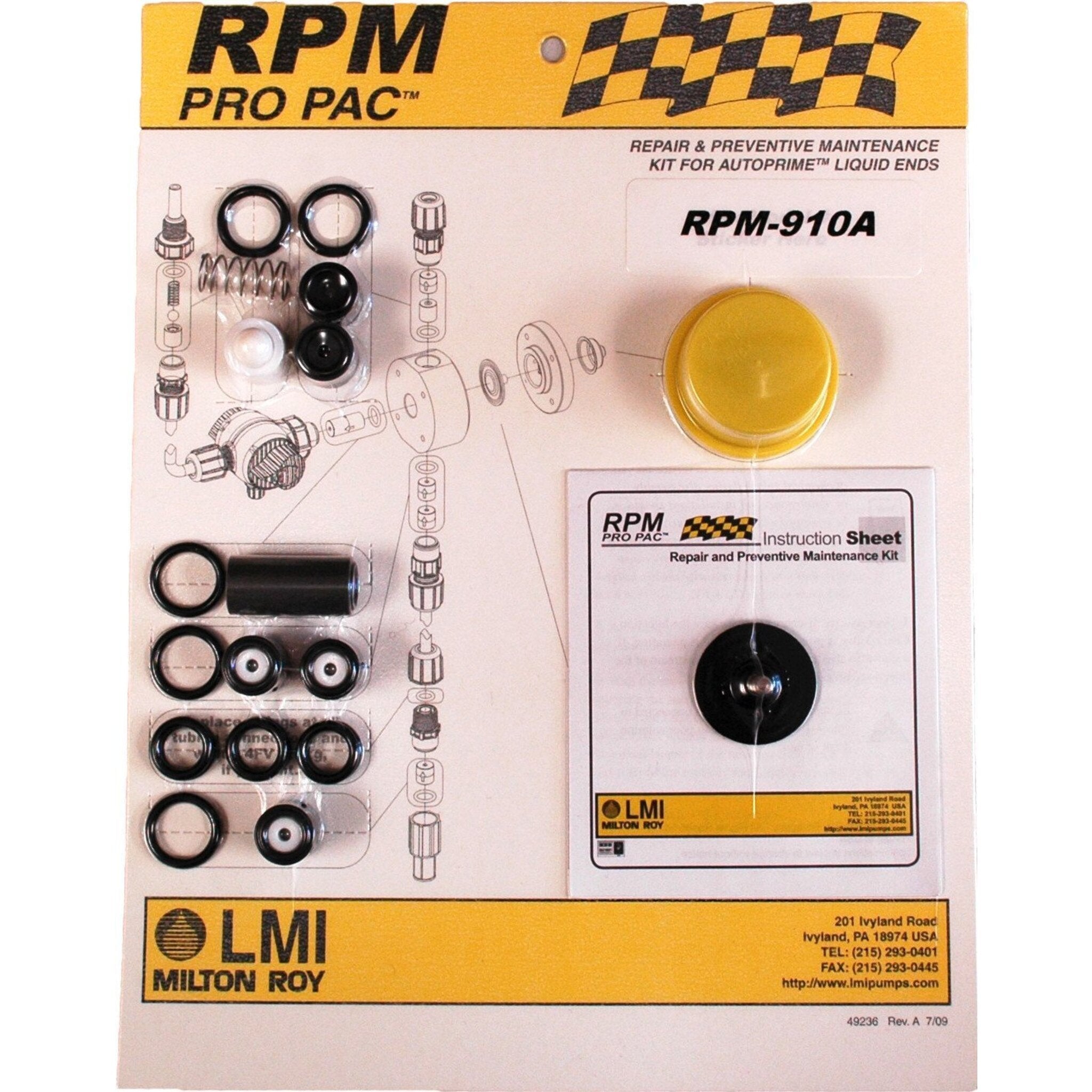
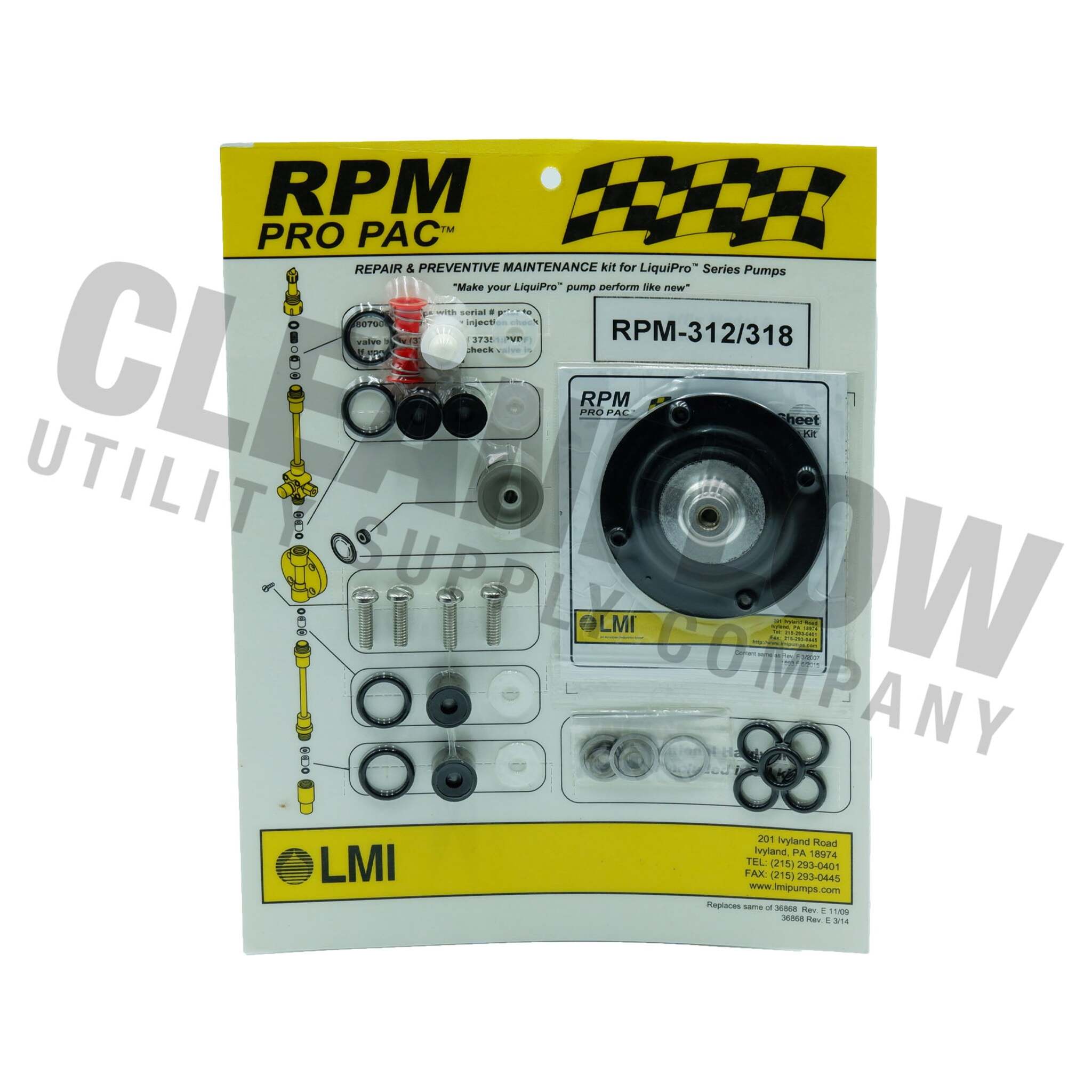
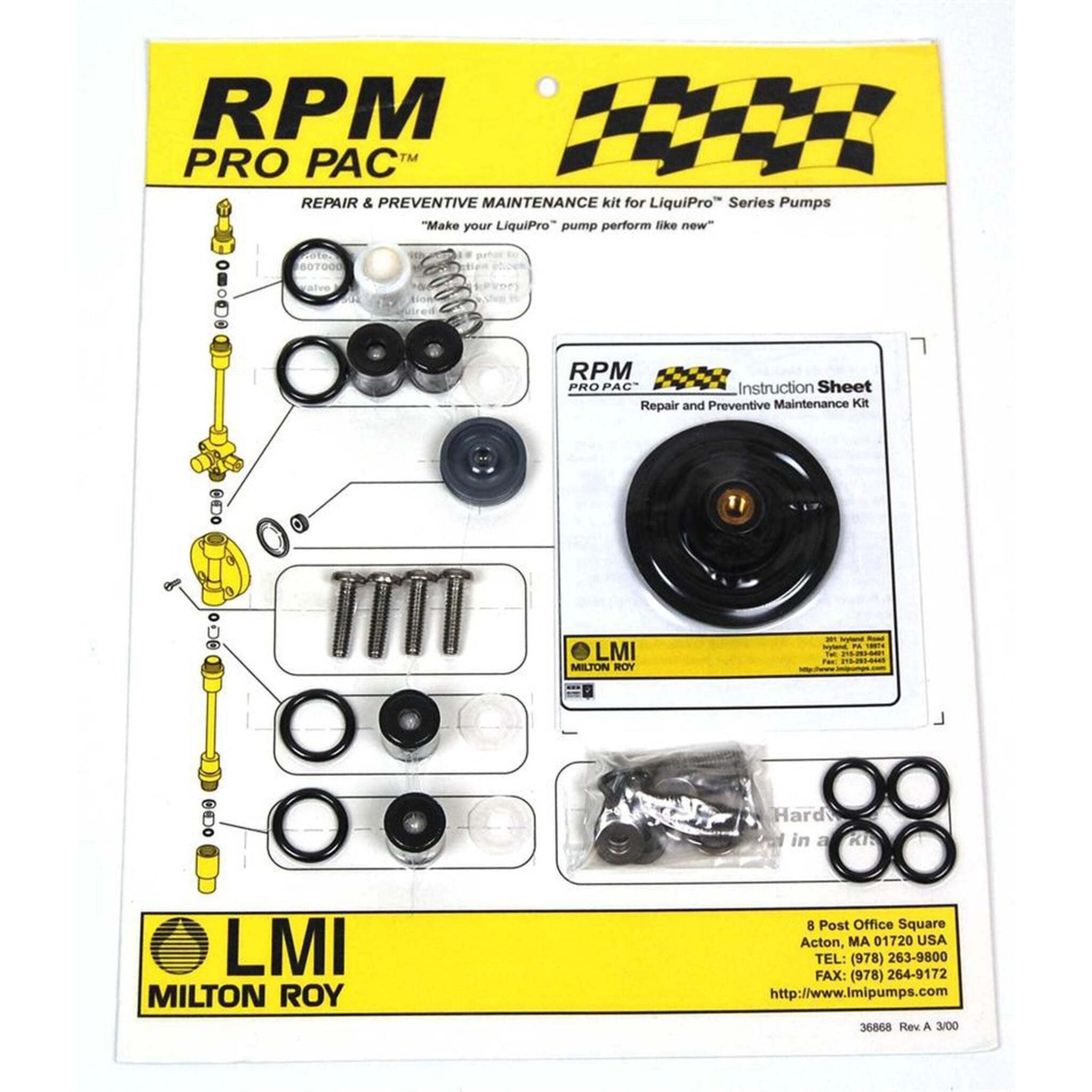
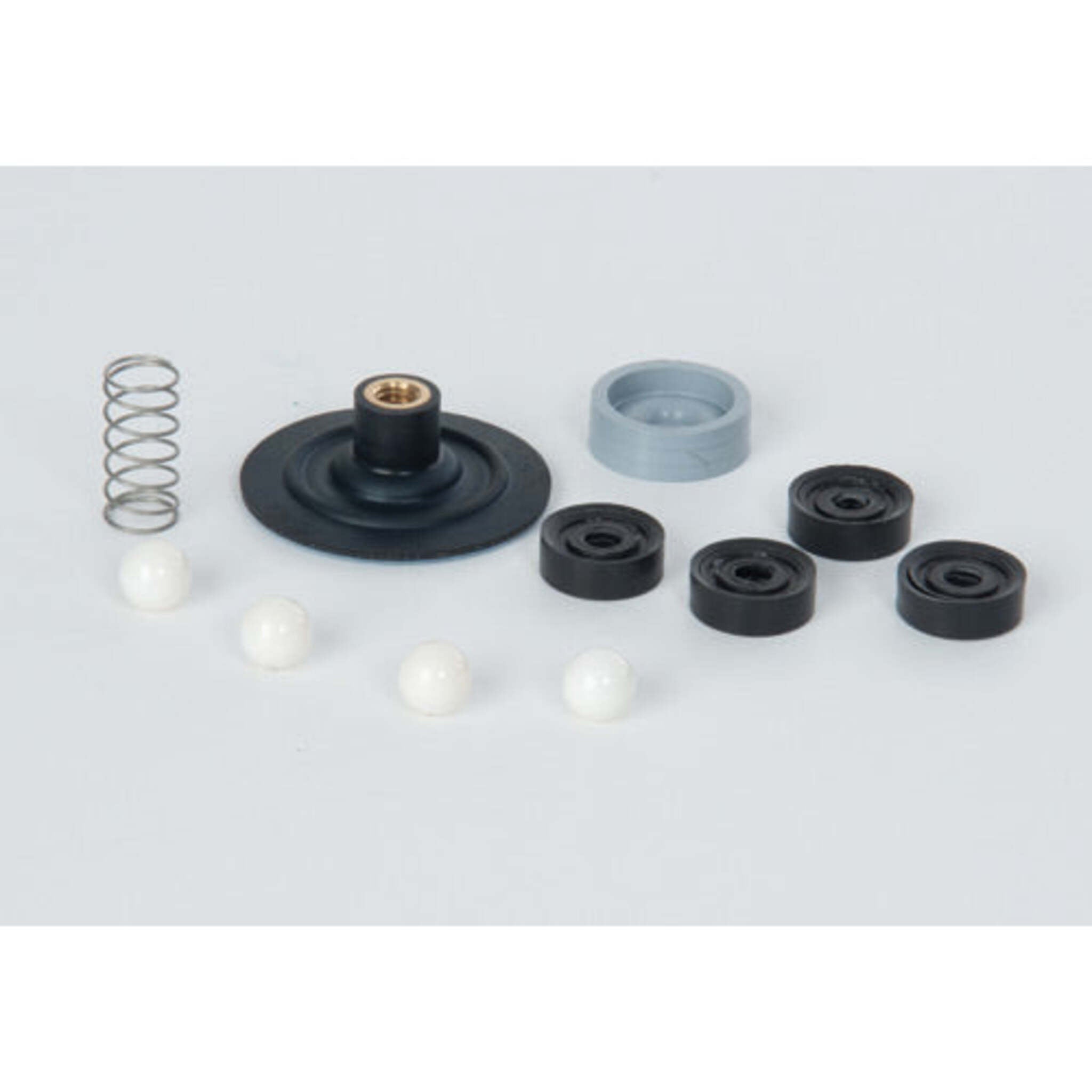
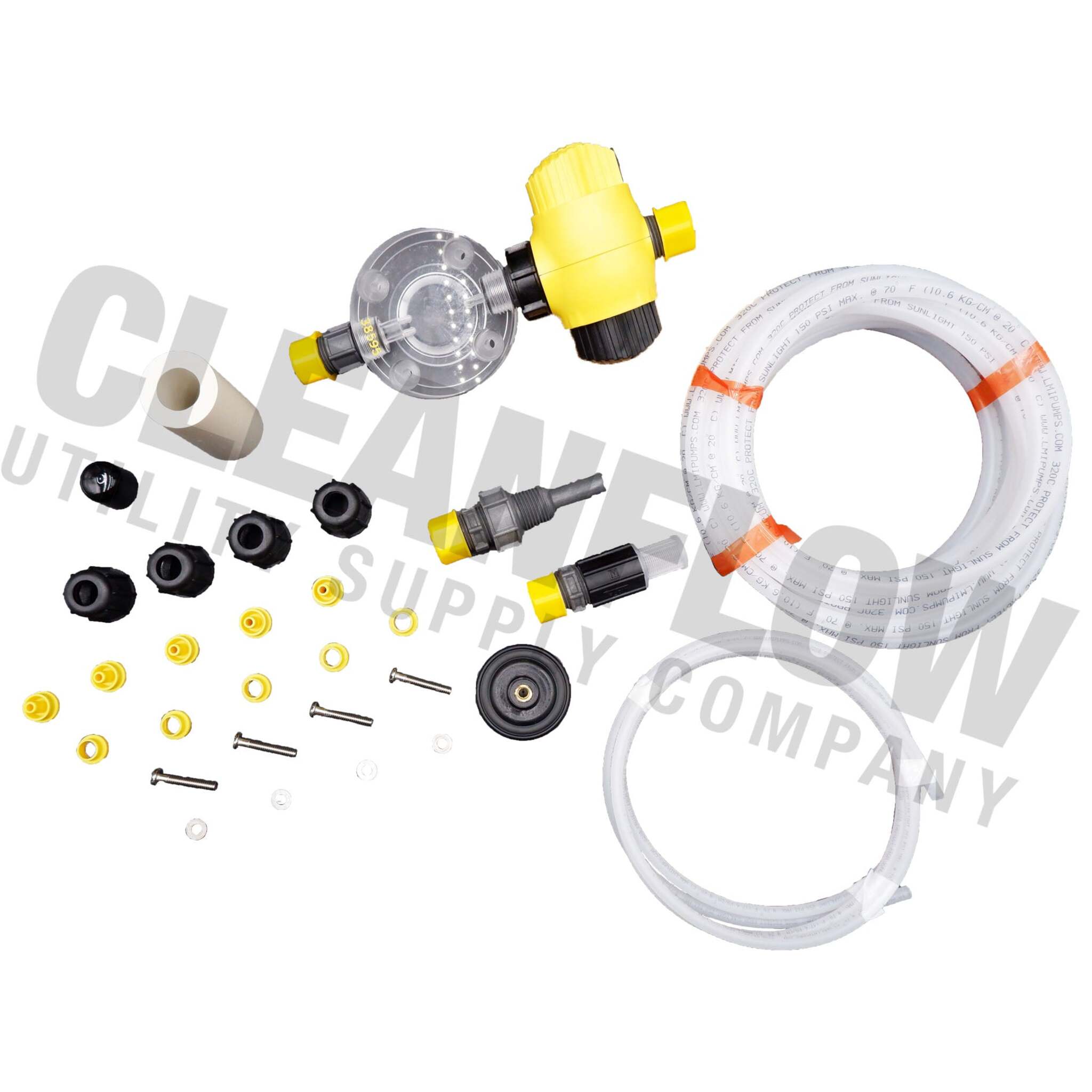
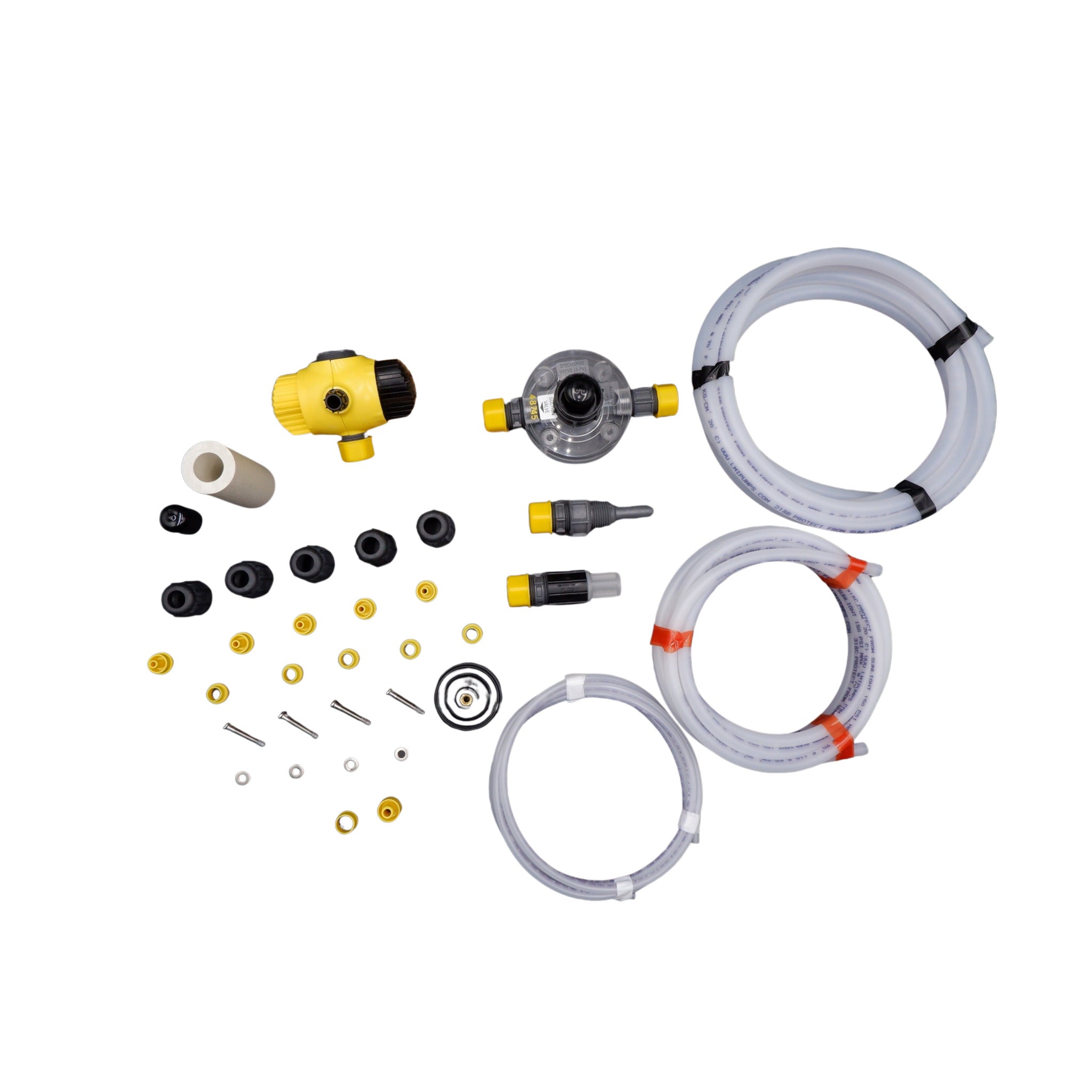
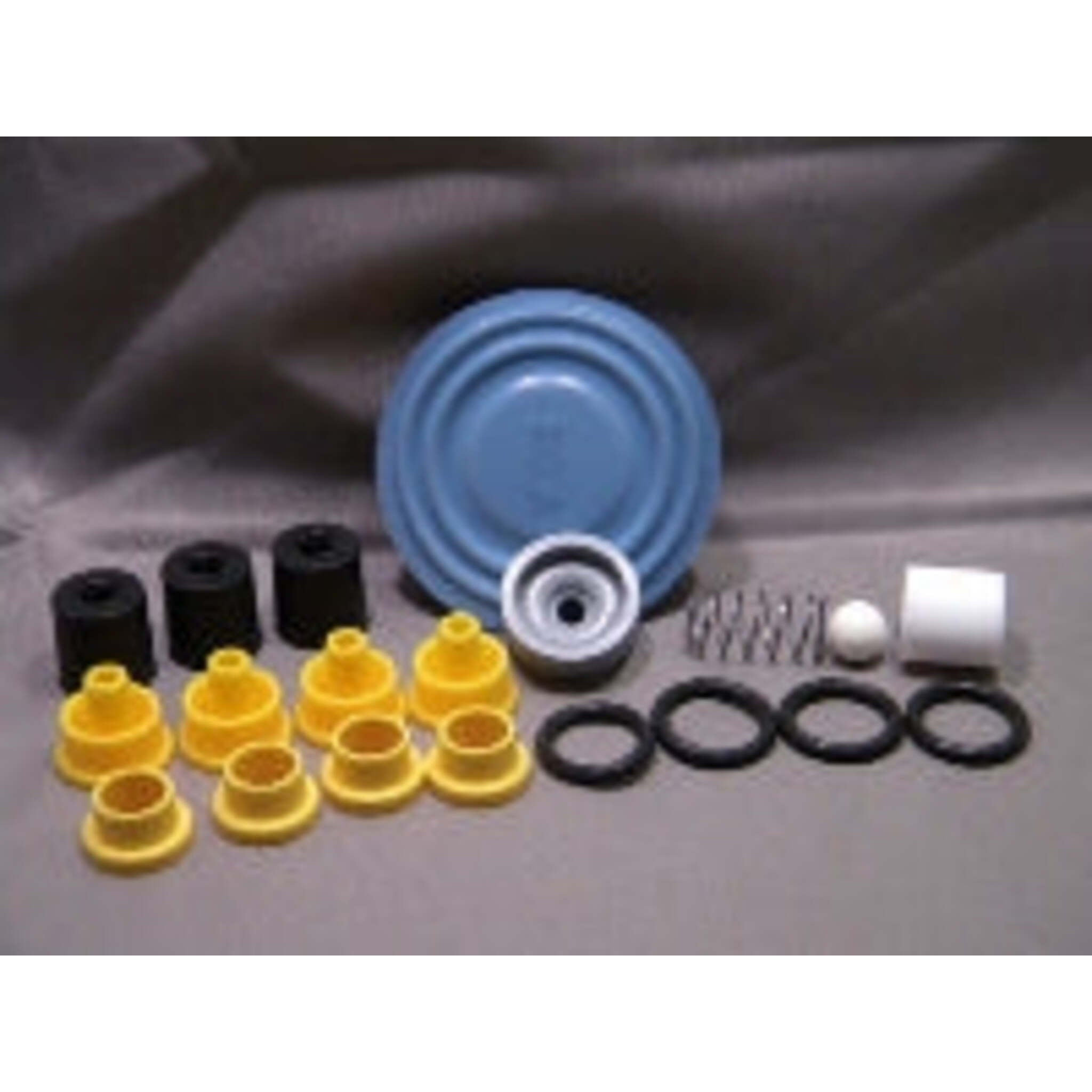
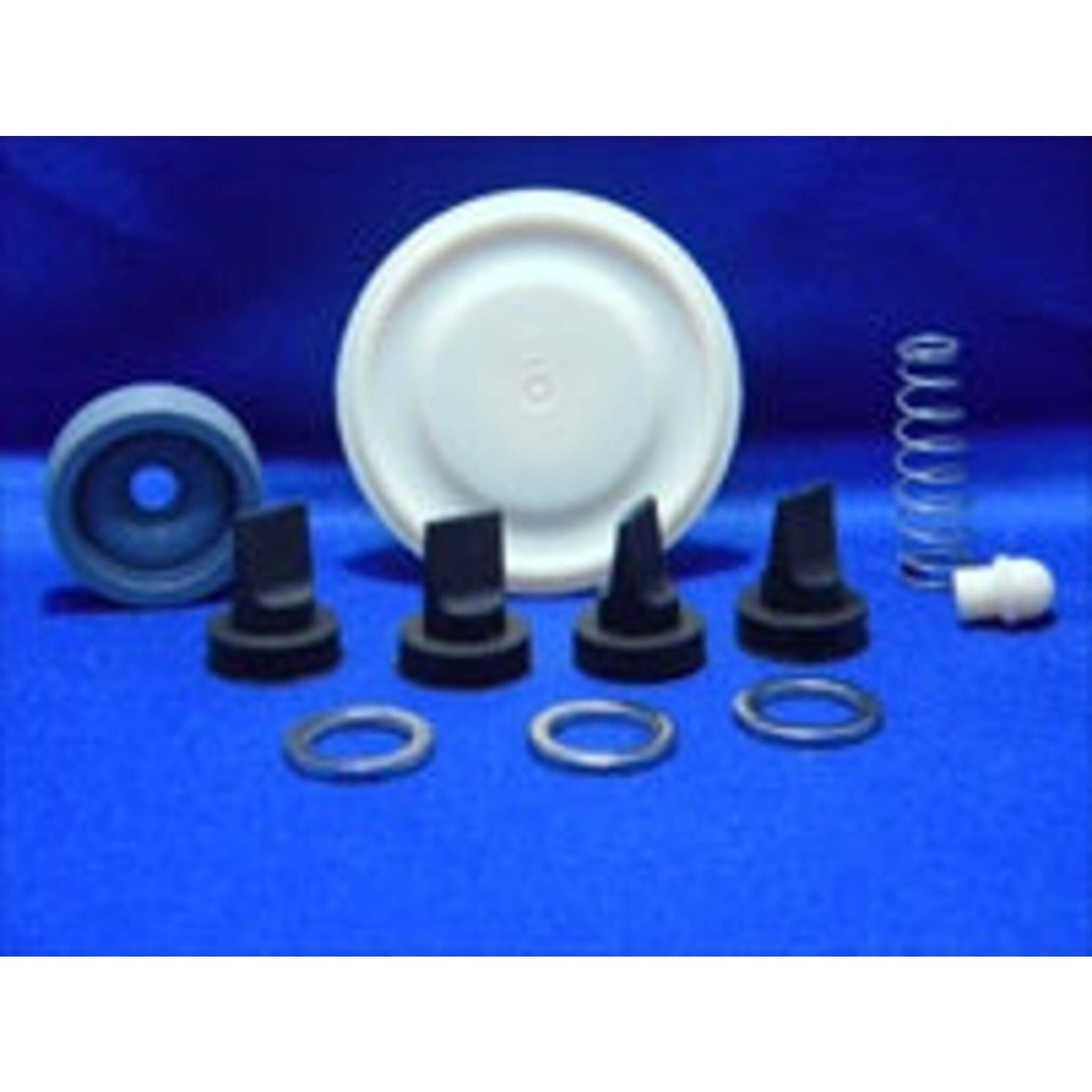
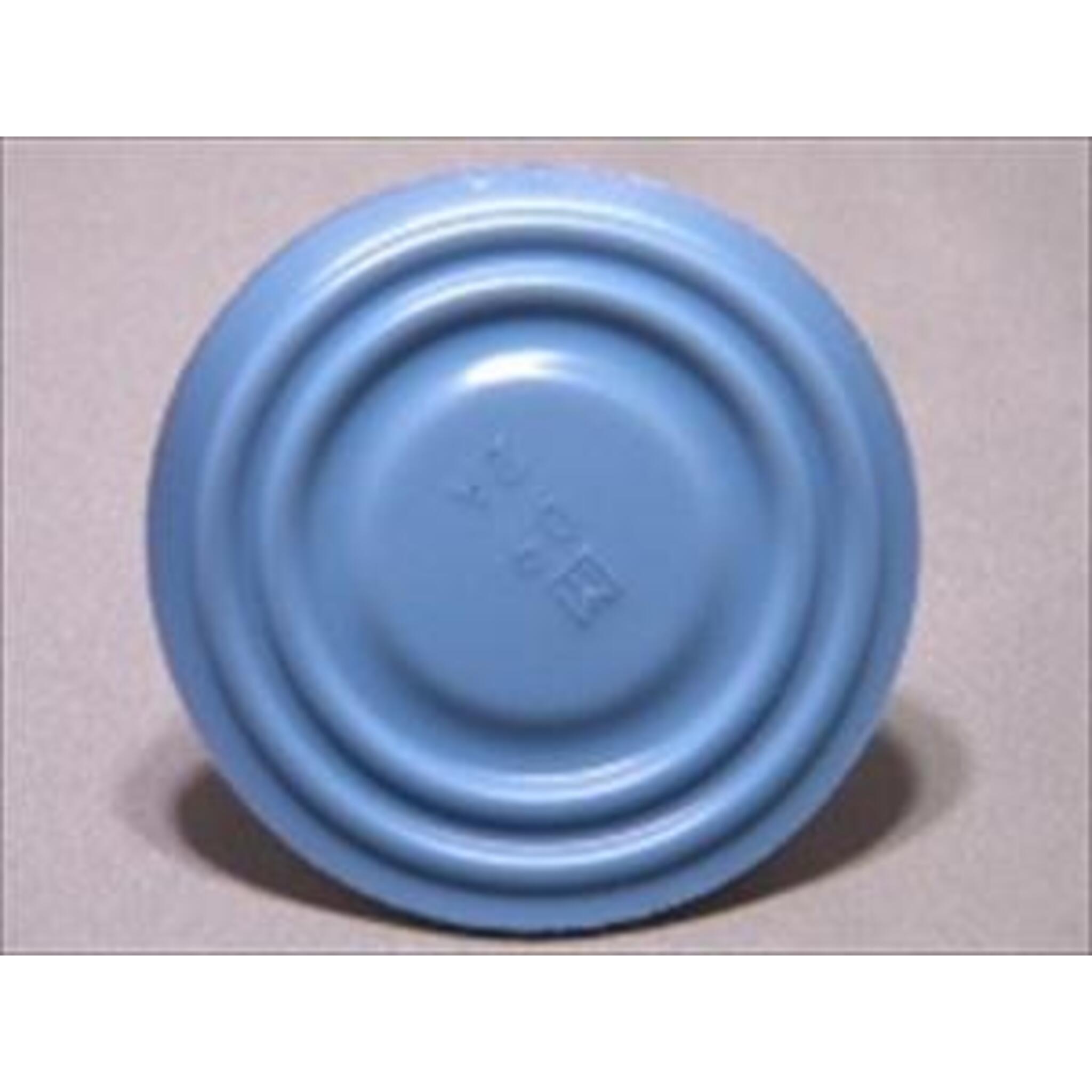
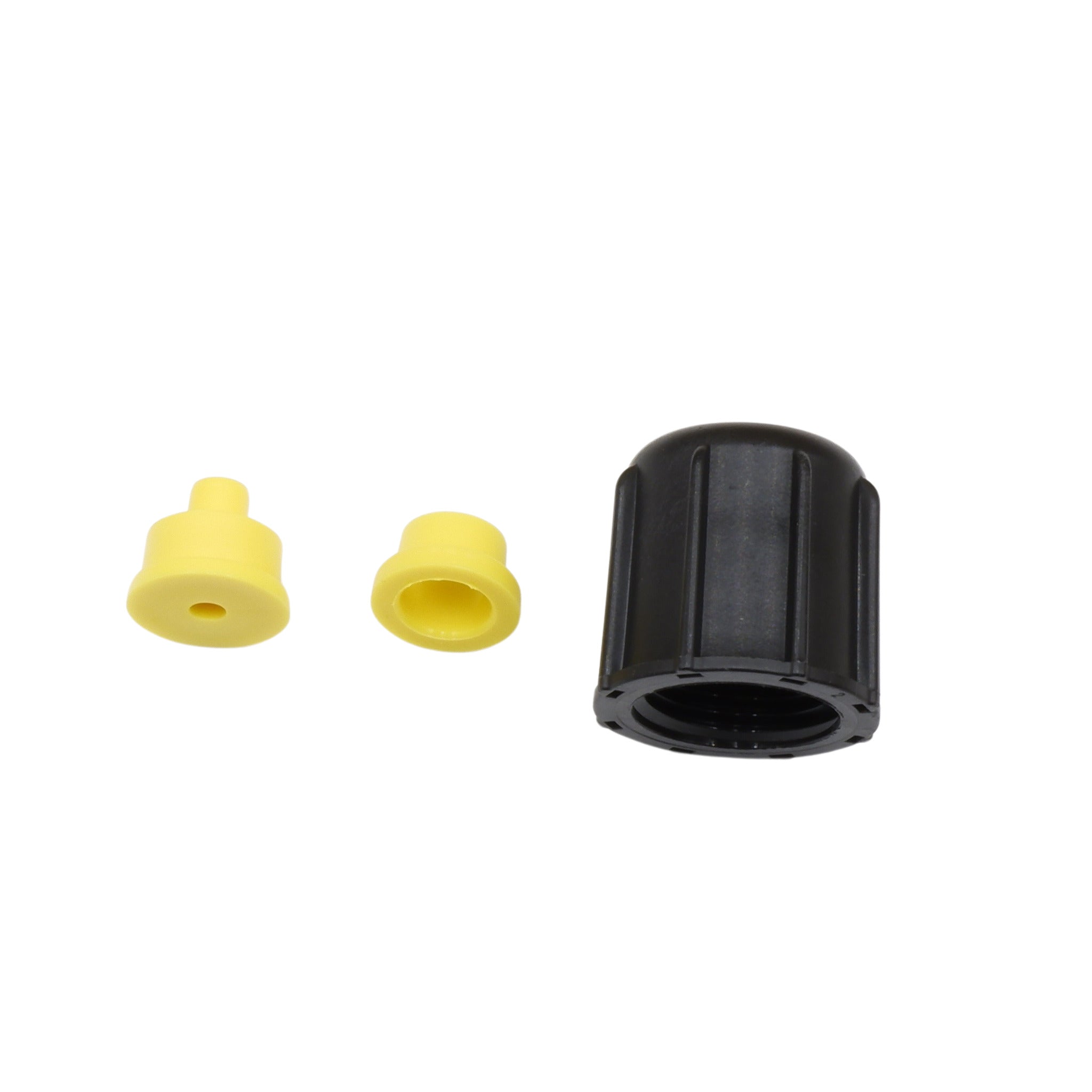
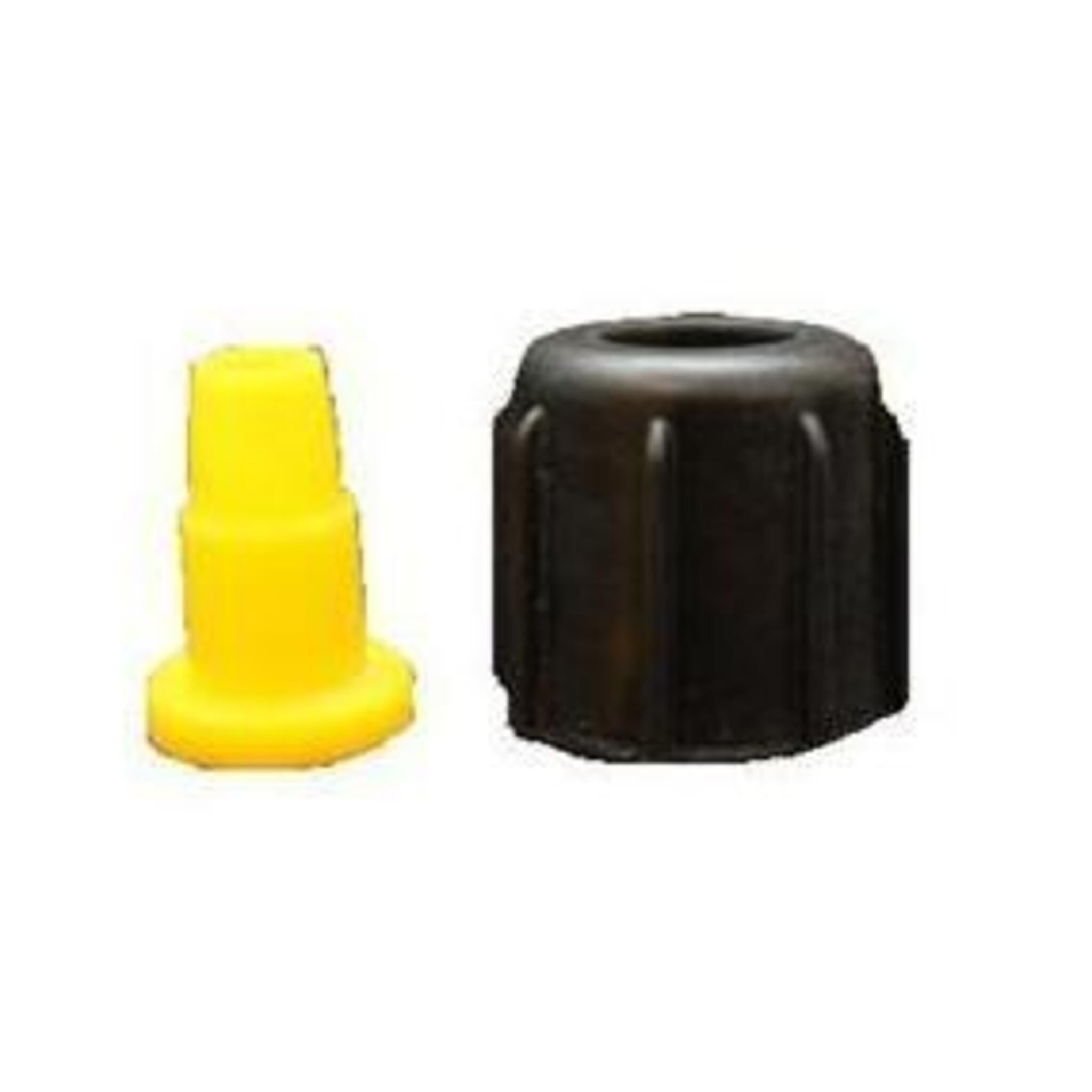
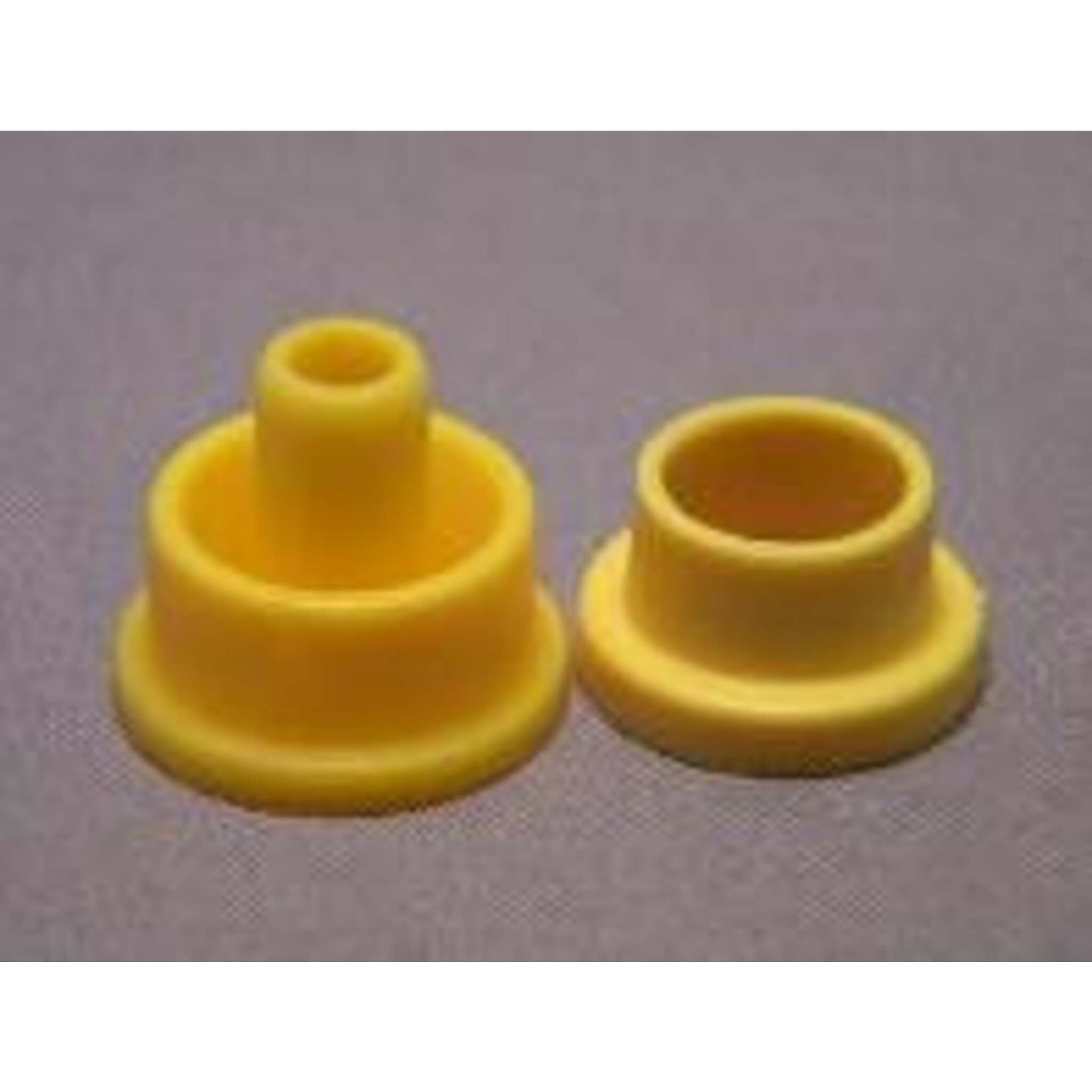
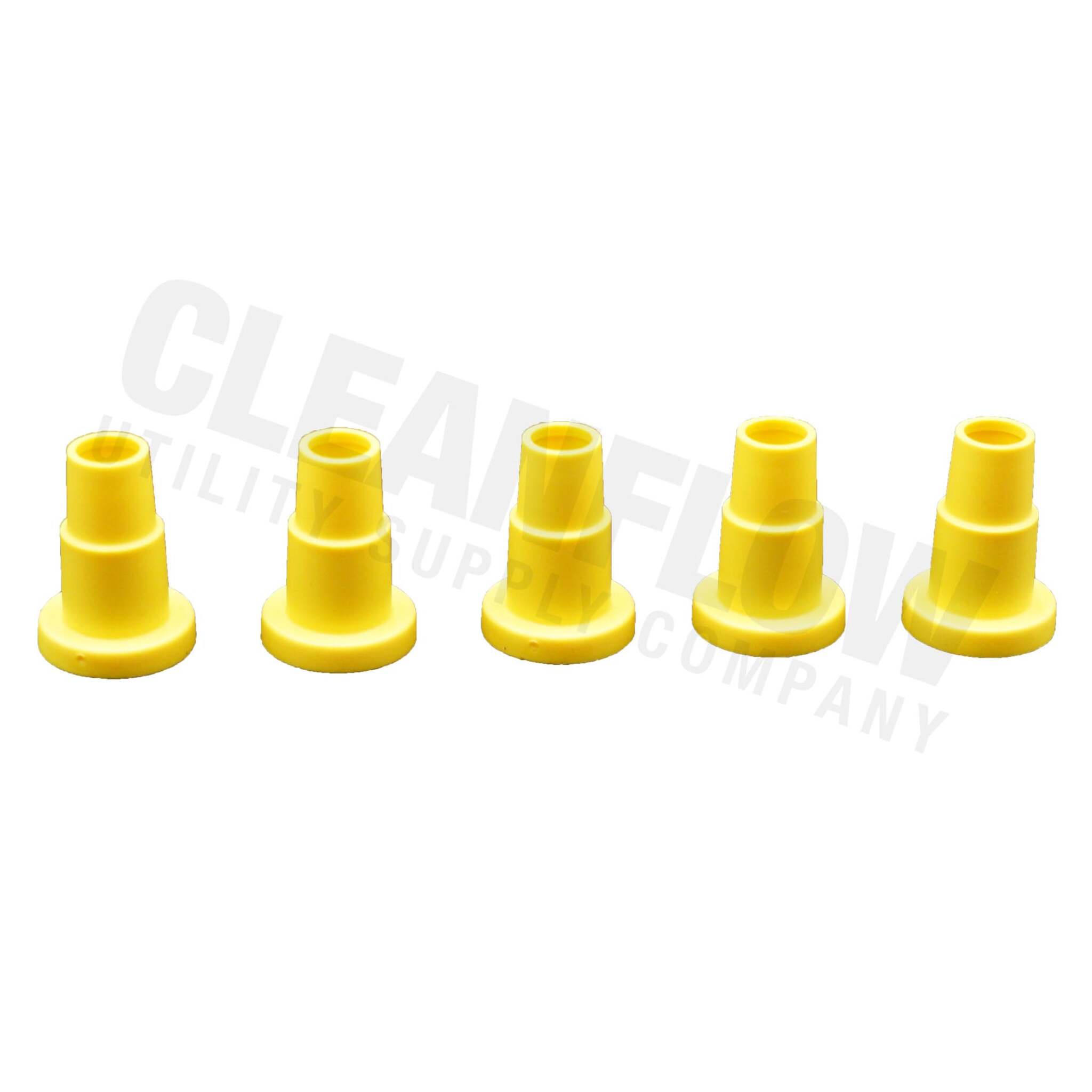
Chemical Metering Pumps
Chemical metering pumps play a crucial role in a wide range of industries where precise dosing of chemicals is required. These pumps are designed to deliver accurate and consistent amounts of chemicals into a process or system, ensuring optimal performance and efficiency. In this article, we will explore the working principles, types, applications, selection factors, maintenance practices, safety precautions, and advancements in chemical metering pumps.
Introduction to Chemical Metering Pumps
Chemical metering pumps are devices used to deliver a controlled flow of chemicals into a system or process. They are commonly employed in water and wastewater treatment plants, industrial processes, agriculture, and various other applications. These pumps are designed to handle a wide range of chemicals, including acids, alkalis, disinfectants, and additives.
How Chemical Metering Pumps Work
Basic Components of Chemical Metering Pumps
Chemical metering pumps consist of several essential components, including a pump head, drive mechanism, motor, diaphragm or piston, valves, and a control system. The pump head houses the diaphragm or piston and is responsible for the pumping action. The drive mechanism, typically a motor, imparts the necessary force to move the diaphragm or piston.
Pumping Mechanism and Operation
Chemical metering pumps operate based on two primary mechanisms: diaphragm-based and piston-based. In diaphragm metering pumps, the reciprocating motion of a diaphragm creates suction and discharge cycles, while in piston metering pumps, a piston moves back and forth to draw and expel the chemical.
Types of Chemical Metering Pumps
There are several types of chemical metering pumps available, each with its own advantages and applications. The three most common types are diaphragm metering pumps, piston metering pumps, and peristaltic metering pumps.
Diaphragm Metering Pumps
Diaphragm metering pumps utilize a flexible diaphragm to create the pumping action. The diaphragm, usually made of durable and chemically resistant materials such as Teflon or Santoprene, moves back and forth to draw in the chemical through one valve and expel it through another. Diaphragm metering pumps are known for their accuracy, reliability, and ability to handle a wide range of chemicals. They are commonly used in water treatment, chemical processing, and industrial applications.
Piston Metering Pumps
Piston metering pumps operate by the reciprocating motion of a piston within a cylinder. As the piston moves back, it creates suction, pulling the chemical into the cylinder. When the piston moves forward, it displaces the chemical, forcing it out through a discharge valve. Piston metering pumps are known for their high pressure capabilities and precise metering accuracy. They are often used in applications that require high-pressure dosing, such as oil and gas production, power generation, and manufacturing processes.
Peristaltic Metering Pumps
Peristaltic metering pumps use a rotating roller or shoe to compress and release a flexible tube. As the roller or shoe moves along the tube, it creates a squeezing action, drawing in the chemical and propelling it forward. Peristaltic pumps are popular for their gentle pumping action, which is ideal for shear-sensitive or abrasive chemicals. They are commonly used in pharmaceutical manufacturing, food and beverage processing, and laboratory applications.
Applications of Chemical Metering Pumps
Chemical metering pumps find extensive use in various industries and applications where accurate and controlled chemical dosing is essential. Some of the common applications include:
Water and Wastewater Treatment
Chemical metering pumps are extensively used in water and wastewater treatment plants. They play a critical role in the dosing of water treatment chemicals such as chlorine, coagulants, pH adjusters, and disinfectants. These pumps ensure the precise addition of chemicals, maintaining water quality, and preventing the growth of harmful microorganisms.
Chemical Injection in Industrial Processes
In industrial processes, chemical metering pumps are employed for precise chemical injection. They are used to add corrosion inhibitors, scale inhibitors, biocides, and other chemicals to control and optimize various processes, including cooling water treatment, boiler feedwater treatment, and chemical reactions.
Agriculture and Irrigation
Chemical metering pumps are utilized in agriculture for the controlled application of fertilizers, pesticides, and herbicides. They ensure that the correct amount of chemicals is delivered to the soil or irrigation system, promoting healthy plant growth while minimizing environmental impact.
Oil and Gas Industry
The oil and gas industry relies on chemical metering pumps for various applications, such as chemical injection for corrosion prevention, scale inhibition, and enhanced oil recovery. These pumps play a vital role in maintaining the integrity of pipelines, wellheads, and other equipment.
Factors to Consider When Selecting a Chemical Metering Pump
When selecting a chemical metering pump for a specific application, several factors should be considered to ensure optimal performance and compatibility:
Flow Rate and Pressure Requirements
One of the crucial factors to consider is the required flow rate and operating pressure. It is essential to choose a pump that can meet the specific flow rate and pressure demands of the application. The pump should be able to deliver the required chemical dosage accurately and consistently.
Chemical Compatibility
Chemical compatibility is of utmost importance to prevent pump damage and ensure efficient operation. Different chemicals have varying properties, such as corrosiveness, viscosity, and reactivity. It is vital to select a pump that is compatible with the chemicals being dosed. The materials of construction, including the diaphragm, valves, and seals, should be resistant to the chemicals being handled.
Accuracy and Precision
For applications that require precise dosing, such as water treatment or laboratory processes, the accuracy and precision of the metering pump are critical. The pump should be capable of delivering consistent and repeatable doses, ensuring the desired chemical concentration and avoiding overdosing or underdosing.
Maintenance and Reliability
Considerations should be given to the maintenance requirements and reliability of the pump. Look for pumps that are easy to maintain, with readily available spare parts. Regular maintenance and inspection should be performed to ensure smooth operation and prolong the pump's lifespan.
Best Practices for Operating and Maintaining Chemical Metering Pumps
To ensure the optimal performance and longevity of chemical metering pumps, the following best practices should be followed:
Proper Installation and Setup
Correct installation is crucial for the efficient operation of a chemical metering pump. Ensure that the pump is installed on a stable and level surface. Follow the manufacturer's instructions for electrical connections, priming the pump, and setting the desired flow rate and pressure.
Routine Maintenance and Inspection
Regular maintenance and inspection are essential to prevent pump failures and maintain accurate dosing. Follow the manufacturer's recommended maintenance schedule, which may include tasks such as checking for leaks, inspecting valves and diaphragms, and lubricating moving parts. It is also important to monitor the pump's performance and promptly address any issues or deviations.
Diaphragm Replacement and Valve Cleaning
Diaphragms are critical components of diaphragm metering pumps and may require replacement over time. Follow the manufacturer's guidelines for diaphragm replacement and ensure proper alignment and tensioning. Valves should be regularly inspected and cleaned to prevent clogging or malfunction.
Safety Precautions and Handling of Chemicals
When working with chemical metering pumps and handling chemicals, it is crucial to prioritize safety. The following safety precautions should be observed:
Personal Protective Equipment (PPE)
Wear appropriate personal protective equipment, such as gloves, goggles, and chemical-resistant clothing, when handling chemicals or working with chemical metering pumps. PPE helps protect against chemical exposure and potential hazards.
Chemical Handling Procedures
Follow proper procedures for handling chemicals, including storage, transportation, and disposal. Read and adhere to the safety data sheets (SDS) provided by chemical manufacturers, which provide essential information about handling precautions and emergency measures.
Spill and Leak Containment
Implement measures to contain and respond to chemical spills or leaks. Have spill kits readily available, and ensure that personnel are trained in proper spill response procedures. Promptly clean up any spills to prevent environmental contamination and potential hazards.
Advancements in Chemical Metering Pump Technology
The field of chemical metering pumps has seen advancements in technology, leading to improved performance, control, and connectivity. Some notable advancements include:
Digital Control and Automation
Modern chemical metering pumps often feature digital control interfaces, allowing precise adjustment of flow rate, pressure, and dosing parameters. Automation capabilities enable integration with process control systems, allowing for remote control and monitoring.
Remote Monitoring and Connectivity
Some chemical metering pumps now offer remote monitoring capabilities. Through internet connectivity, operators can remotely monitor pump performance, receive alerts for maintenance needs or malfunctions, and adjust dosing parameters from a central location. This enhances efficiency and reduces the need for on-site visits.
Conclusion
Chemical metering pumps are indispensable devices for precise and controlled dosing of chemicals in various industries and applications. Understanding their working principles, types, applications, selection factors, maintenance practices, and safety precautions is crucial for optimal performance and safety. With advancements in technology, chemical metering pumps continue to evolve, offering greater accuracy, automation, and connectivity for enhanced efficiency and productivity.
FAQs
- Are chemical metering pumps suitable for corrosive chemicals?
Yes, chemical metering pumps are designed to handle a wide range of chemicals, including corrosive substances. However, it is important to select a pump with materials of construction that are compatible with the specific chemical being dosed.
- Can chemical metering pumps handle high-pressure applications?
Yes, certain types of chemical metering pumps, such as piston metering pumps, are capable of handling high-pressure applications. These pumps are designed to deliver precise dosing at elevated pressures.
- What maintenance tasks are typically required for chemical metering pumps?
Routine maintenance tasks for chemical metering pumps may include checking for leaks, inspecting and replacing diaphragms or pistons, cleaning valves, lubricating moving parts, and verifying calibration.
- Can chemical metering pumps be remotely controlled and monitored?
Yes, modern chemical metering pumps often feature digital control interfaces and remote monitoring capabilities. Through internet connectivity, operators can adjust dosing parameters and monitor pump performance from a remote location.
- What safety precautions should be followed when working with chemical metering pumps?
When working with chemical metering pumps, it is important to wear appropriate personal protective equipment, follow proper chemical handling procedures, and have measures in place to contain and respond to spills or leaks. Additionally, it is crucial to be familiar with the specific safety guidelines outlined in the chemicals' safety data sheets (SDS).






















